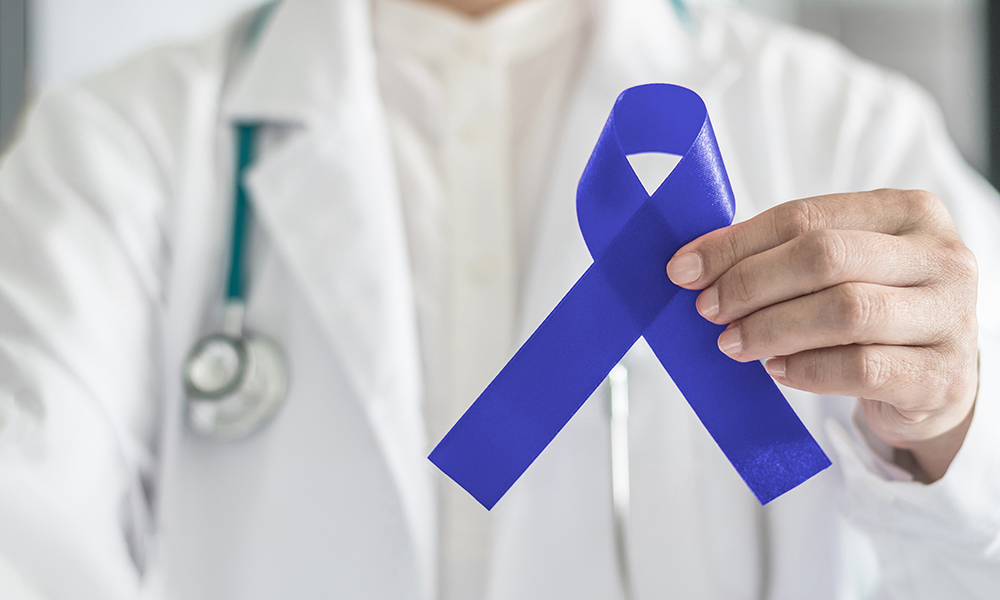The old adage says “an apple a day keeps the doctor away”, but the effects of a healthy diet and lifestyle go far beyond an annual visit to the doctor and can help prevent the Colon Cancer.
Diet, exercise, and lifestyle have been shown to help reduce the risk of several diseases, including colon cancer or colorectal cancer (CRC).
Data from the World Cancer Research Fund International shows that there is strong evidence that the consumption of whole grains, dietary fiber and dairy products lowers the risk of colorectal cancer. Staying physically active can also reduce your risk of contracting the disease.
On the other hand, eating red and processed meats, drinking alcohol, and being overweight or obese increase the risk of colon cancer.
Colon cancer screenings
The American Cancer Society recommends that anyone at average risk for colorectal cancer begin regular screenings at age 45. Options range from home testing to colonoscopy.
Make an appointment
“If there is a cancer that can be largely preventable, we should do everything we can to prevent it from happening in the first place, because the best cancer to cure is really the one that never happens,” said Michael F. Driscoll, MD. , a gastrointestinal medical oncologist at the Norton Cancer Institute. “We know that colorectal cancer is over 90% preventable, and often if people get their proper screenings in time, these can be found at the polyp stage before they progress to actual cancer.”
In addition to diet and exercise, other factors affect the risk of colon cancer.
According to the World Cancer Research Fund International, smoking two packs of cigarettes a day increases the risk of colon cancer by about 40% and almost doubles the risk of death from colon cancer. Inflammatory bowel diseases, such as Crohn’s disease and ulcerative colitis, also increase the risk of colon cancer.
More than half of all colon cancer cases and deaths can be attributed to modifiable risk factors, such as smoking, poor diet, heavy alcohol consumption, physical inactivity and body weight.
“If people can quit smoking, we know that eliminates a very important risk factor for developing colorectal cancer,” Dr. Driscoll said. “Getting rid of these risks in your life, and then changing your diet, exercising more, are kind of handy things we can do to prevent, not only the risk of colorectal cancer, but also other cancers.”
According to American Cancer Society, colon cancer is the third most commonly diagnosed cancer and the third most common cause of cancer-related death in men and women in the United States. Colon cancer is also the leading cause of cancer-related death in men under 50.
“About 140,000 people are diagnosed with colorectal cancer each year, and for a cancer that is more than 90% preventable in the first place, people need to know their family history, need to be proactive in trying to reduce their risk, and then get screened colonoscopies in time,” Dr. Driscoll said.
